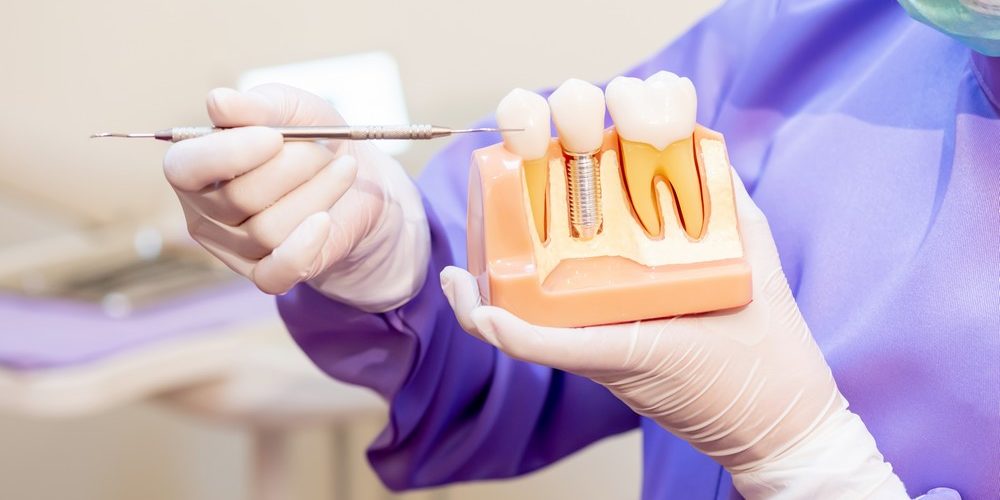Losing your teeth doesn’t have to affect your smile. Luckily, there are prosthetics available that will have you chewing and smiling confidently in no time. This replacement for your teeth is known as dentures or false teeth.
There are many types of dentures/false teeth available and which one you choose depends on several factors, including the health of your remaining teeth, location, and your budget. Deciding what option is best for you will be a decision you make after a detailed chat with your dentist. In this blog, we provide an overview of the main types of dentures available.
Complete set of false teeth
A complete set of false teeth/dentures is utilised by those who have no remaining teeth within their mouth. In the past this type of false teeth was made from rigid plastic or porcelain, but in more modern times a chemically treated resin is used. While this material is relatively strong, they may chip, but luckily, they can be replaced.
The false teeth are placed onto a gum-coloured resin which fits the gum line, based on an impression taken of your gums. Once the false teeth have be manufactured, you are able to try it and if you have any discomfort then it can be reshaped/moulded to better suit your oral situation. While these false teeth should last a significant period of time, they should be changed every 5-10 years, as your oral situation will likely change over time, and you must avoid the teeth being poorly fitted in your mouth.
Partial set of false teeth
If you do still retain some natural teeth within your mouth then you will be able to get a partial set of false teeth, rather than a complete set. Some of the key types of partial false teeth have been detailed below…
Bridge supported false teeth
If your mouth is only missing 1 or 2 consecutive teeth, then a bridge supported set of false teeth could be an option for you. These bridges can come in many different forms. The false teeth/crown material used is usually ceramic. They are aesthetically like natural teeth and are fixed in place so they are permanent and can allow for normal chewing.
Implant supported false teeth
This is the most popular type of false teeth as it replicates having your natural teeth best and is perhaps the most modern form. The titanium screw is fixed into the jawbone and can then be used to support individual crowns, small bridges to full arch bridges and even dentures.
The process is dictated by long it takes for the bone to fuse onto the implants which is normally 3 – 6 months. Dental Implants are perhaps the best option with regards to false teeth, due to the stability, appearance and chewing ability.
False Teeth Aftercare
Aftercare will depend upon which option you go for. If you have full dentures and have no implants, or natural teeth remaining, then maintenance is straightforward. We would suggest keeping your dentures clean, following the usual instructions.
If you have dental implants or natural teeth, then you must follow the strict maintenance protocol which includes a daily homecare regime, seeing your dentist every 6-12 months and hygiene visits every 6 months. Your dentist should thoroughly explain the aftercare procedure following your treatment.
If you are looking to restore you smile to regain confidence and enjoy chewing your food with ease once again, give our expert Sensational Smiles team a call and we can chat through your options.


